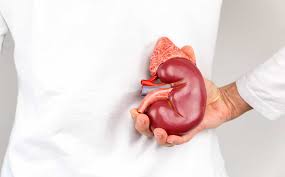Article
Kidney Cancer's Affect On the Risks of Coronavirus
Author(s):
How kidney cancer affects the risks of coronavirus.
Many kidney cancer patients and caregivers are concerned about the risk of getting and/or becoming very ill if infected by the novel coronavirus COVID-19. In discussions on Facebook, online support networks, and other social media platforms, risk is a major theme.
Dr. Brian Rini, Chief of Clinical Trials at Vanderbilt-Ingram Cancer Center in Nashville, Tennessee and a member of the Kidney Cancer Association’s Medical Steering Committee, and Dr. Toni Choueiri, Director of the Lank Center for Genitourinary Oncology at Dana-Farber Cancer Institute/Brigham and Women’s Hospital in Boston, Massachusetts, answered some basic questions about risk among kidney cancer patients.
Does a person’s health profile — if they have kidney cancer, the cancer stage, when they’ve had surgery and how long ago, if they have no evidence of disease (NED), etc. – impact their risk of infection with COVID-19? How?
Dr. Brian Rini: This is not entirely known but it is likely that patients with an active cancer (i.e. not NED) and undergoing active therapy are likely at higher risk of infection.
Dr. Toni Choueiri: I would think advanced aged and presence of comorbidities would matter irrespective. Someone who had surgery and is not on active therapy would be at lower risk. [Nobody’s] risk is zero!
Can the risk of getting COVID-19 be mitigated?
BR: Yes, in the sense that we are trying to keep patients away from the hospital/medical center as much as possible with telehealth visits, shipping study drug when possible, possibly holding treatments or spacing out infusions. These are individual decisions that need to be discussed between the patient and the provider.
TC: All the data so far points toward social distancing, masks, proper hygiene: all playing an important role. Studies are coming and there is a flurry of research… Just today I saw a Nature Medicine paper about randomized controlled trials of masks vs non-masks. It shows masks reduce transmissions!
How does a person’s health profile impact the risk of becoming seriously ill if they become infected with COVID-19?
BR: This is not known. At Vanderbilt, we have created a national registry, called CCC-19, that is collecting data on patients with active cancer and COVID-19 infection to understand how the cancer affects COVID-19 infection and vice-versa.
TC: Older age, heart and lung comorbidities, and immunosuppression are all [some of the] risk factors. In the context of renal cell carcinoma (RCC) — already people with RCC [may] have these risk factors based on the average population of patients. Add to that any immunosuppression that can happen. An example is the use of corticosteroids, sometimes for a prolonged period of time, in patients with advanced disease who receive immune checkpoint inhibitors and develop immune-related side effects.
Does the risk of serious illness change a lot among individual kidney cancer patients (as opposed to cancer patients as a group)?
TC: Adjusted for all underlying conditions, stage, comorbidities, medications, chemotherapy/systemic therapy, I do not think RCC is different here.
Can the risk of serious illness in cancer patients who become infected be mitigated?
BR: There are numerous approaches to treating COVID-19 infection, both serious and less serious infections. No approach at present is proven to help. It is important to note that most patients with COVID-19 infection (95%) will get better and 85% total do not require hospitalization.
TC: Nothing stands out compared to non-cancer patients. We do not yet have approved “mitigation” strategies, but studies are emerging very fast with clinical trials being conducted. Old drugs that are being repurposed (e.g. hydrochloroquinine) have emerged from small observational studies with mixed results. No large positive randomized trials are reported to date. One randomized trial of lopinavir—ritonavir (two antiretrovirals) vs standard of care was unfortunately negative.
Sometimes strategies to clear the virus in patients with no symptoms is not the same strategies and medications as clearing it in a symptomatic patient with a pneumonia from COVID-19. Everything is in flux now… of course, the way of the future is a vaccine and to be ready and have clear systems in place for pandemics.
2 Commerce Drive
Cranbury, NJ 08512
All rights reserved.




